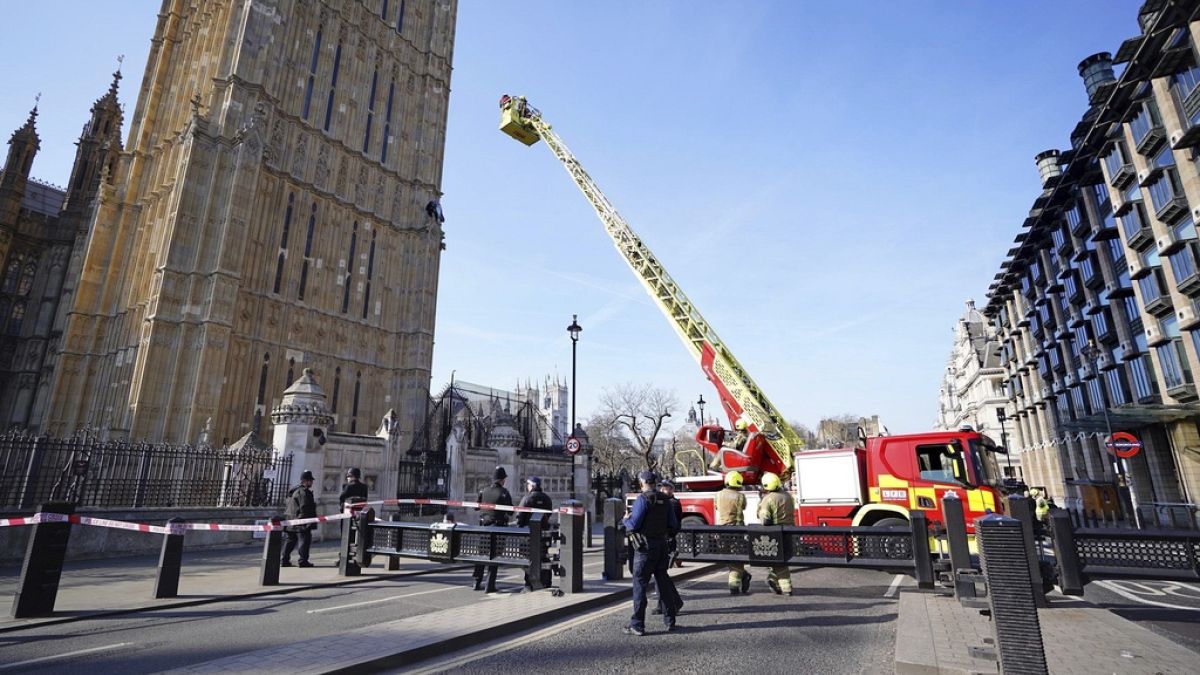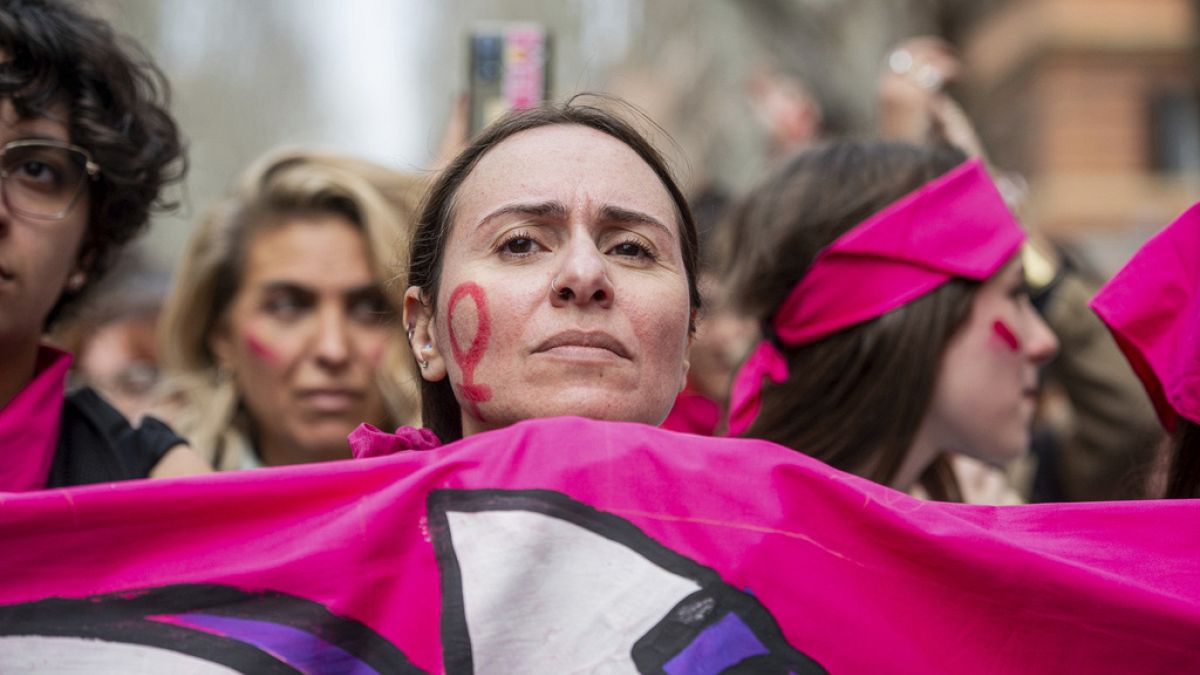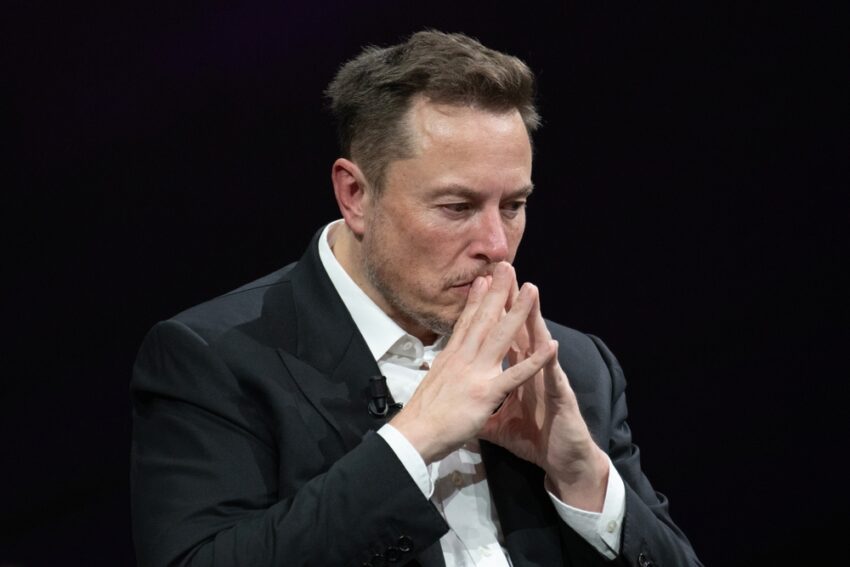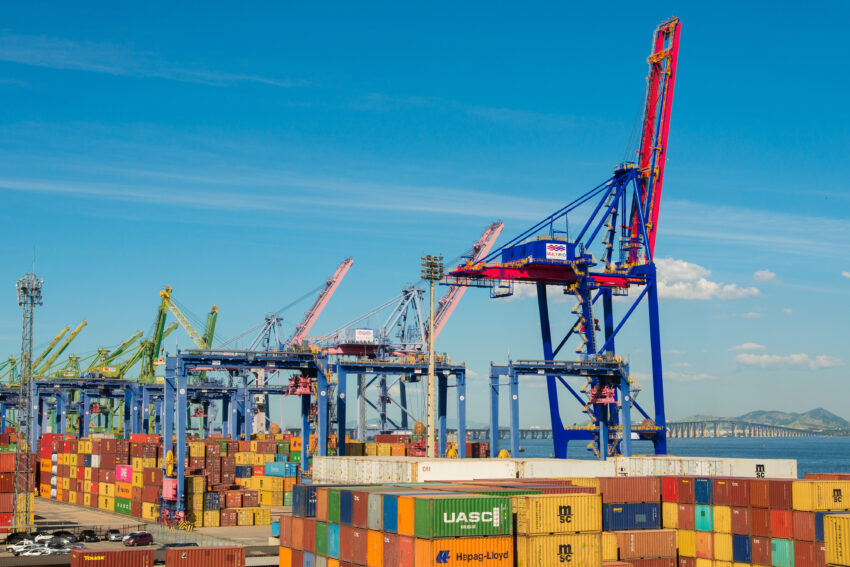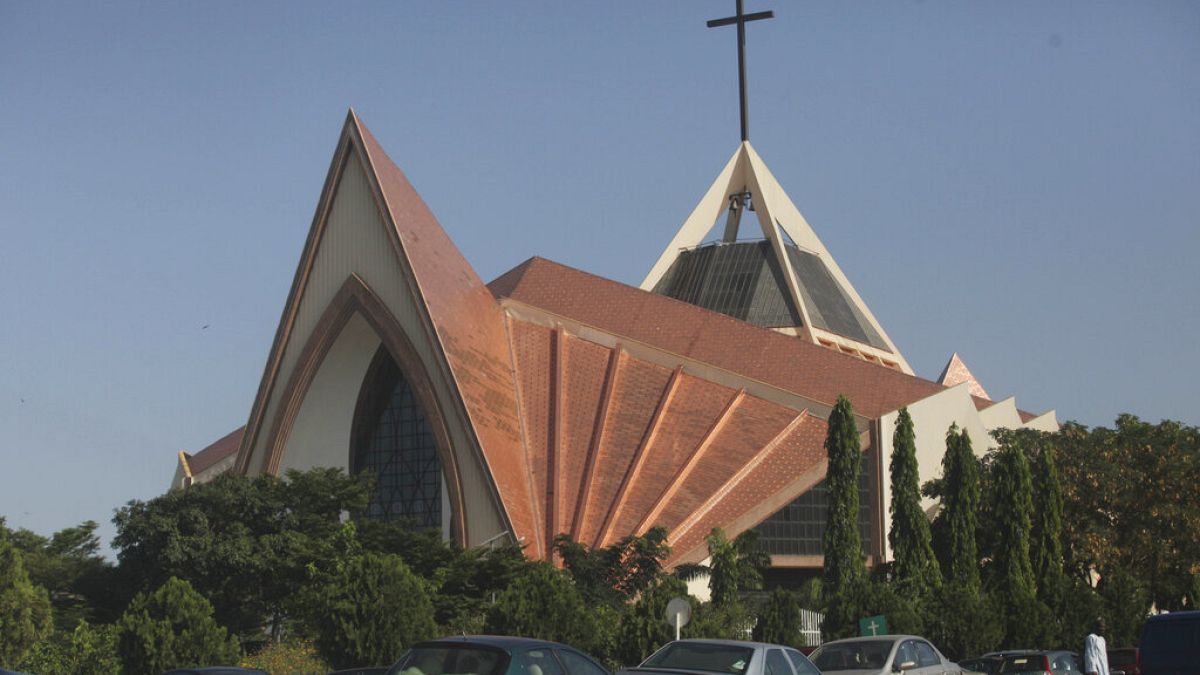Britain’s hunt for a Trump whisperer
The U.K's center-left government reckons it's made friends with Donald Trump. Now it just has to keep things that way.
LONDON — While the world scrambles to adjust to the reality of Donald Trump’s return to the White House, behind the scenes Britain is feeling the heat more than most.
Relations between the transatlantic allies now rest more heavily than ever on the shoulders of one woman: U.K. Ambassador to the U.S. Karen Pierce, who has successfully cultivated close ties to Trump and those around him.
But her term is scheduled to end early next year, and beyond her, the picture is more uncertain — leaving Downing Street open to accusations that it lacks foreign policy heft.
That means No. 10 is on the lookout for a new conduit to the maverick who has once again been elected leader of the free world.
Many serving politicians from the ruling Labour Party, a long-standing ally of the defeated U.S. Democrats, were privately glum at the result of Tuesday’s election, despite the U.K. government’s studied neutrality.
The fragility of the connection to the incoming administration was highlighted during the campaign, when Team Trump seized on Labour members who volunteered to help Kamala Harris.
Meanwhile, British characters already on Trump’s radar, such as Reform UK leader Nigel Farage and former British Prime Minister Boris Johnson, are politically unacceptable to the new Labour administration.
Keir Starmer himself could not be more temperamentally different to Trump — a pescatarian who likes a beer, while the teetotal president-elect sticks to Coke and loves steak and fried chicken. His Foreign Secretary David Lammy, while successfully courting key Republicans before the election, has a history of disobliging comments about the next U.S. president which are unlikely to be forgotten, even if both sides claim they have been forgiven.
Trump has privately complained to associates in Britain that Starmer is “very left-wing” in recent months, Bloomberg reported. Starmer spoke to Trump by phone Wednesday night, offering “hearty congratulations,” recalling the president elect’s British family roots and agreeing that “the relationship between the U.K. and U.S. was incredibly strong and would continue to thrive for many years to come,” No. 10 said.
In the hours after the U.S. election, No. 10 took the rare step of publicly stating Lammy would remain in post for the entire parliamentary term as they sought to shore up his position, amid speculation he would be moved aside in favor of a more diplomatic chief diplomat.
An undiplomatic diplomat
Lammy was quick to congratulate Trump as his victory became clear. In his message, he made a point of referencing vice president-elect JD Vance, a connection he has assiduously cultivated.
However, questions remain over how Starmer will build a working relationship with the notoriously erratic U.S. leader.

One diplomat from another NATO country, granted anonymity to speak candidly like others in this piece, said there was “a gap” when it came to foreign policy initiative from the new U.K. government which would only get worse under Trump.
Britain does have one clear advantage when it comes to courting Trump in the form of Pierce, who has spent the last six years in the U.S, serving as ambassador to the U.N. before moving to Washington.
She is a colorful figure, known for her outlandish handbags and high heels, with deep connections on both sides of the political divide in D.C.
She played a key role in recent interactions between Trump and the British government before Starmer was elected, and helped secure a phone call between the new PM and Trump after the latter was shot in July in the first of two assassination attempts.
Piercing insight
Pierce is aided by Senay Bulbul, a political counsellor at the embassy. Two people with knowledge of the operation say Bulbul was instrumental to making in-roads into Trump’s team, which led to a dinner for Starmer and Lammy at Trump Tower as they attended the UN General Assembly in New York in September.
When the previous government led by Rishi Sunak moved to install outgoing U.K. national security adviser Tim Barrow as Pierce’s successor, Pierce resisted the change and ultimately got her way, according to two people involved in the process.
She is contracted to remain in Washington until early next year, but given the outcome of the election there are now high expectations she may stay in post for longer to aid relations with the Trump administration. A lengthy formal extension would be unusual, however.
Oft-mooted plans to install a political ally of Starmer, such as former Tony Blair lieutenants Peter Mandelson or David Miliband, remain on the table but will be more complicated minus Harris in the White House.
Alternates are hard to identify. Many Labour politicians were once disobliging about Trump, while the U.K.’s previous ambassador, Kim Darroch, resigned in 2019 over leaked cables in which he called the first Trump administration “inept.” No. 10 will be keen to avoid offending the president all over again.
One possibility being raised in Whitehall is that Barrow could become ambassador to the U.S. after all, while Pierce is offered Barrow’s security adviser job. But no decisions have been made, and the formal process has not started — Starmer was waiting to see who would win the White House before firing the starting gun.
Whoever takes the job of ambassador, a one-person operation to woo Trump is unlikely to be sufficient.
Sophia Gaston, U.K. foreign policy lead at ASPI think tank, said the government would need to target both Trump’s inner and outer circle, and Congress. “This is a more complex and resource-intensive diplomatic operation than we are used to, and the British mission will need to be beefed up,” she added.

Officials may find refuge in the extensive intelligence and security conversations between the U.S. and U.K, even while raw politics dominates the public debate. “The military-to-military relationship continues,” said one senior Labour MP. “People often forget about that.”
A Whitehall official insisted the approach would be “business as usual” despite the result. “In 2016 the British state wasn’t ready for a Trump victory. This time there has been planning for every scenario,” they said.
Getting past the grudge
With the foreign affairs landscape radically altered with Trump’s victory, Starmer will need to up his diplomatic game. Some observers suggest he starts at a disadvantage with Trump despite Labour’s best efforts.
In opposition, Lammy labeled Trump a “neo-Nazi sympathizing sociopath” but since taking office has sought to build bridges with the president-elect and his team.
One former FCDO official who worked with Trump said “the political partnership under Starmer will be harder.”
They added that, “unfortunately for Lammy and Starmer, he does hold a grudge, and you’ve already heard the language he’s used about a ‘socialist government’ in the U.K.” A diplomatic official insisted Trump did not raise Lammy’s past comments at the September dinner.
At the same time as U.K. government figures will be scrambling to adjust to Trump, a series of backroom moves by Starmer has left No. 10 somewhat weakened on the international front, with long-serving foreign policy aide John Bew departing for academia while another senior adviser, Donjeta Miftari, left after a few months in post.
“They just didn’t put as much thought into this before taking office as some other governments have,” said one Whitehall official.
Downing Street and the Foreign, Commonwealth and Development Office both strongly deny that they lack diplomatic firepower. Allies of Lammy point out that he has extensive contacts in Washington, and particular ties to Vance.
A Whitehall official said: “The foreign secretary has visited more than 20 countries since he started, and the one country he understands best is the U.S. People can make criticism, but he gets America — he has friends there, he’s studied there, he’s lived and worked there. The open-armed part of his personality works for Americans.”
Elbridge Colby, who is tipped to become national security adviser under the Trump administration, said on a recent episode of POLITICO’s Power Play podcast: “Based on what I can see, David Lammy is far preferable to [former Conservative Foreign Secretary] David Cameron, obviously. I mean absolutely.”
No. 10 sprang to Lammy’s defense after new Conservative leader Kemi Badenoch taunted Starmer in the Commons over Lammy’s past remark.

But criticism from the Conservative opposition, along with a whispering campaign by those who anonymously question Lammy’s talents, is likely to continue.
And the two governments’ approach to China will be a whole other story. Trump has threatened a trade war with Beijing, while Labour is — tentatively — trying to keep economic lines open. A much-anticipated “audit” of London’s China policy is due to report in January or February.
In the meantime, the approach of the U.K.’s still-new Labour government to a triumphant second-term Trump is still very much a work in progress.
What's Your Reaction?







